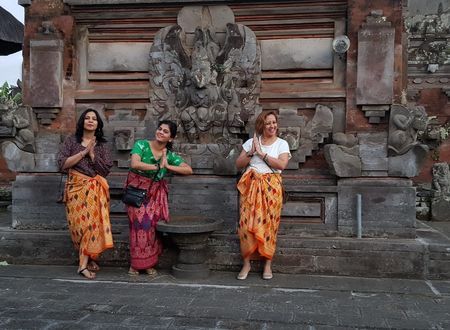The Roman philosopher Seneca said, “True happiness is to enjoy the present, without anxious dependence on the future.”
Happiness is a state of unburdening ourselves, of the past or the future. We cannot easily disconnect ourselves from the past or the future, and we carry them wherever we go. We may think of the past as a negative or a positive experience. Similarly, when we are optimistic about the future, it becomes a positive experience, and when there is fear, negativity rules the mind.
There is value in the past, a knowledge bank that helps us reflect, learn, and improve. The future is a guidepost that can help give direction and purpose to our lives. However, our awareness must not be entangled with those thoughts if we are to extract value from the past or derive purpose from the future. The problem arises when we are so deeply identified with our experiences that we become them. We live as though the past or the future is a present experience.
Our awareness can exist separate from the mind and thoughts. When riding in a car, we know we are not part of the car. Similarly, awareness can be in the mind, but as long as we maintain a slight separation, we have one leg in the present. Another way of looking at the present is knowing we are not the mind or thoughts.
Life is like a long highway between two large cities. One is ancient, past its prime. Parts of it may be falling apart and decaying, and other areas may be well preserved and worth visiting. The other is a city being built from the ground up. The present moment is like the empty stretch of road between these two places.
As we travel through life’s journey, keeping our eyes on the ‘road’ just ahead by not looking too far into the future puts us in the present. Being ‘present’ does not have to mean that we must have our attention on the ‘immediate present.’ Keeping our attention on this precise moment is as impossible a task as looking at the road under a car while we are driving.
The immediate future, for example, the next hour, for all practical purposes, is still in the present. Taking life one hour at a time makes the energy locked in thoughts of the past or future available to us and makes the past or the future less significant. The freedom from the weight of carrying those thoughts is liberating.
The future is continually approaching. Rather than passively waiting for the future, if we actively engage ourselves in the journey towards the future one hour at a time, it will help us prepare for whatever experiences that arise. Attentiveness to the present will also give us the wisdom that the future will become the past someday, which takes the fear of the future out of the equation. There won’t be “anxious” dependence on the future for happiness. Patiently approaching life an hour at a time keeps us in the present and unlocks a treasure of joy that Seneca promises.









Comments & Discussion
3 COMMENTS
Please login to read members' comments and participate in the discussion.